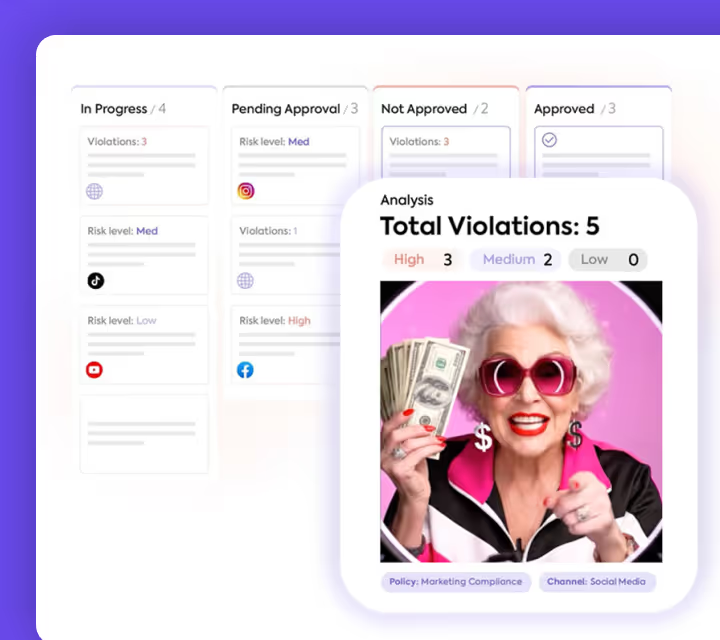It’s an oft-repeated truism that the Covid pandemic has changed life as we know it. For many of the most-discussed issues however – the great resignation, growth in work from home, the shipping/logistics crisis – the pandemic simply accelerated changes that were already afoot and brought issues into much sharper focus.
Fintech Lenders Come Through for Pandemic-Struck Business
Fintech, for example, has been steadily expanding for at least a decade. According to most experts, the 2008 financial crisis vastly reduced consumer confidence in traditional banks and paved the way for alternative lending institutions, which have been steadily growing since the mid-2010’s. The ease, speed, transparency and superior customer experience offered by many fintech platforms have helped contribute to this growth
The initial stages of the Covid pandemic, of course, introduced almost unprecedented uncertainty and risk for all businesses. Many midsize and small enterprises (MSE) needed additional financing to survive and adapt, regardless of whether it was to cover rent on a shuttered business or to increase their workforce to handle more orders.
With the first wave of closures, private lenders (including direct lenders and private debt funds) drastically increased pricing in response to increased levels of risk. Strict rules limiting the conditions under which banks could grant loans – put in place after the 2008 financial crisis and designed to prevent banking collapse – brought bank-originated lending to an almost complete stop.
With limited options, uncertain prospects and immediate need, many business owners turned to digital lending platforms to quickly obtain the financing they needed. In addition to being easily accessed during closures, fintech lenders leverage technology-based sources of credit data and electronic processing platforms that enabled them to approve more loans for small and midsize organizations, more quickly, and often with better terms than private lenders could (or would).
As a result, lending platforms reported a 25% increase in users during the Covid crisis, and some digital lenders have reported increases of up to 5000% in the number of loan applications from prior to March 2020.
Fintechs Match Banks in Consumer Trust
While desperation drove many businesses to seek out alternative lenders, satisfaction has led them to remain. In a recent Harris Poll survey, almost three fourths of the businesses that turned to alternative

lenders to get the assistance they needed to survive the early stages of the pandemic have no intention of returning to traditional lenders should they need help again. McKinsey found that customers trust fintechs roughly as much as they trust traditional banks.
What some of these satisfied, trusting customers may not realize, however, is how vulnerable they are. Rapid fintech advances have often left consumer protection behind. In the US, the Consumer Financial Protection Bureau, the agency responsible for ensuring the fair practices of banks, lenders and other financial institutions, is playing catch-up, struggling to issue regulations that address new fintech models and keep pace with their growth.
Protecting Consumers Protects Your Business
For the short term, this regulatory lag has freed alternative lenders from the compliance burdens faced by traditional financial services firms. But this compliance-free window will not last long: Regulators are hard at work to catch up.
Perhaps more importantly, despite the Covid-spurred bump in alternative lending and high customer satisfaction with fintech options, most potential borrowers want assurance that the financial institutions they work with are regulated and compliant, and that their interests will be protected should something go wrong. Fintech investors are likewise reluctant to take on heightened risks associated with companies that operate outside of industry regulations and might be exposed to costly lawsuits and negative publicity.
For these reasons, as well as because consumer protection agencies will ultimately catch up to new financial models and issue new regulations, smart fintech organizations build compliance processes into their operations even before regulations are issued. Integrating processes to comply with still-unwritten regulations might sound inefficient, and indeed, it often is. Companies that try to apply regulations and frameworks developed for traditional financial institutions are likely to find that the old rules are often irrelevant and hard to adapt. And once new rules are issued, they may well have to undo processes based on incorrect guesses on what new rules will be.
Anticipating Regulation with Proactive Compliance
A wiser approach for fintech firms is to seek the areas of most commonality with traditional finance, and integrate compliance from the very start, using guidelines based on existing regulations which are closest to those with which they will ultimately need to comply. In virtually every case, customer experience is the area that is likely to remain most stable. After all, regardless of how the loan process is done, all customers want assurance that they are safe, protected and their needs attended to.
Integrating compliance procedures that are not strictly necessary (yet) in a non-regulated fintech business accomplishes a number of goals – especially if consumer protection regulations are used as the beta:
- It forces fintech organizations to create regtech processes that are flexible and easily accommodate changing regulations, since it is clear from the start that the regulations will change.
- It lays the groundwork for business growth, since easy integration of new regulations significantly shortens the timeline and expense involved in expanding to diverse jurisdictions
- It integrates compliance as an essential organizational function from the ground up. That means that data gathered during regulatory oversight such as, for instance, consumer interactions, is available as a valuable resource from the start.
- Finally, voluntarily complying with consumer protection regulations provides fintech businesses with a clear competitive edge by laying many reservations on the parts of both consumers and investors to rest.
Consumer protection agencies worldwide, together with bodies responsible for overseeing financial institutions, are hard at work on new generations of financial regulations. Ensuring that your fintech has compliance regtech in place allows it to rapidly adapt as new standards are issued and quickly expand to new markets. In the still-emerging fintech marketplace, demonstrating corporate responsibility and concern for customer protection sets your brand on the fast track to growth.


.png)




